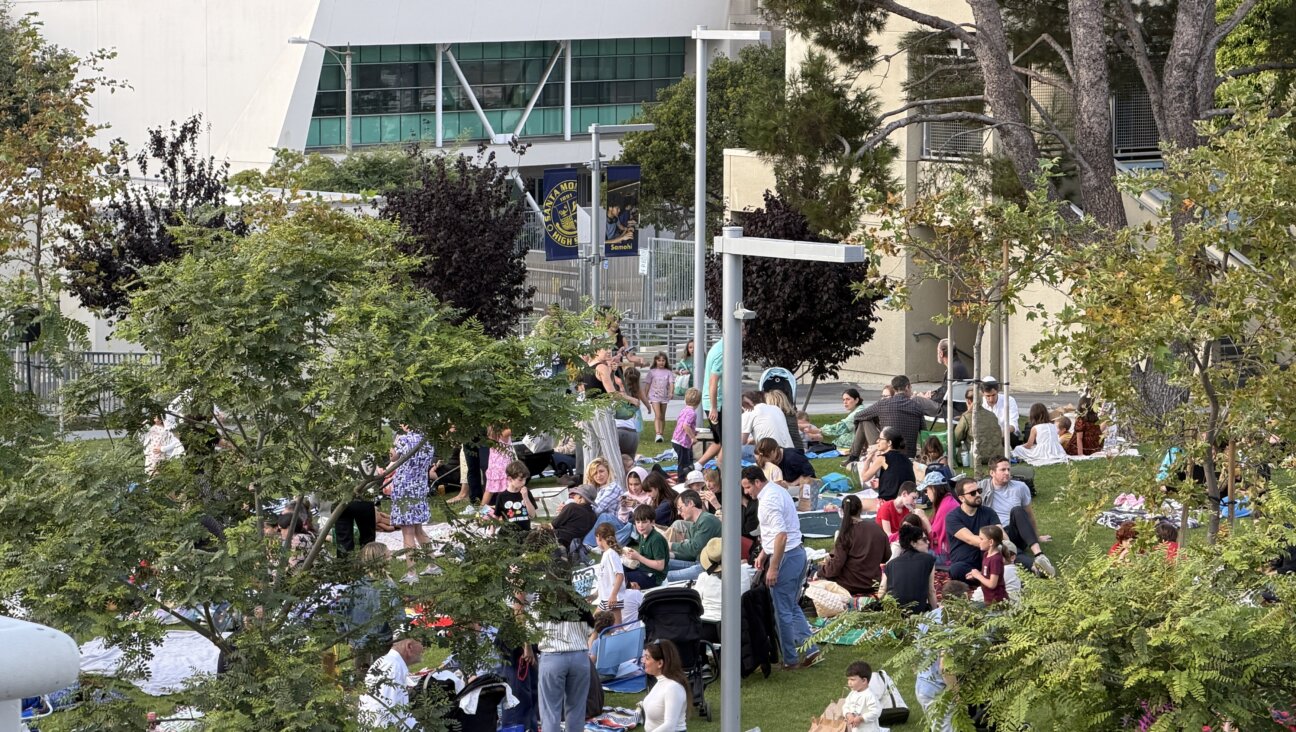From Damascus to Jerusalem: A Syrian’s Case for Peace Talks
It used to be that Israel was the one seeking peace and Syria the one turning it down. Of late, however, it has been Damascus extending the olive branch — and making a whole lot of people scratch their heads. Is Syria serious about wanting to resume peace talks? Should Israel shun Damascus’s invitation, or should it explore, if not exploit, this opportunity?
Israeli leaders are arguing that Syria is using the resumption of talks as a ploy to dilute Washington’s mounting pressure on Damascus. Syrian officials, meanwhile, say they are reaching out to Israel in large part because the United States seems to have forfeited its role of honest broker in the region in general, and toward Syria in particular. Washington’s pressure on Prime Minister Sharon to reject Syrian overtures — out of State Department fears that Syrian-Israeli talks will sidetrack Israel’s planned withdrawal from Gaza and Defense Department insistence that Syria be held accountable for its role in Iraq — is one case in point.
Whatever Syria’s motivation in wanting to resume unconditional bilateral talks with Israel, the bottom line is that Damascus’s offer represents a unique opportunity to advance the cause of peace in the Middle East.
That Syria seeks a peaceful settlement of the Arab-Israeli conflict should not be seen as the product of any love Syrians have for Israel — they have none. Rather, Damascus wants peace with Israel for the simple reason that peace is in Syria’s national interest. Syria’s goal has been and continues to be the containment of Israel within its 1967 boundaries. Given Israel’s superior military — and few people in Syria harbor any doubts that Israel is militarily superior to any combination of Arab power — Syria has come to acknowledge that its goal cannot be achieved by force. This no-nonsense assessment has been the cornerstone of Syria’s Israel policy since the collapse of its superpower patron, the Soviet Union, and it is on this premise that the late president Hafez Assad engaged Israel in bilateral peace talks until his passing in 2000.
But even though this sober assessment might provide Israel with more of a security guarantee than Israel’s doctrine of military superiority, Sharon continues to oppose the resumption of peace talks with Syria, and this despite the advice of his top brass. From a strict balance of power standpoint, Sharon is right: Israel is now so powerful that it need not resume talks, let alone withdraw from the Golan Heights. Furthermore, Syria has scrupulously adhered to the status quo for the past 30 years, and nothing suggests that it will do things differently now. Syria is now weak, and therefore not a threat to Israel. Under these circumstances, why should Israel give Syria anything?
The balance of power should rightly be the major consideration in the strategic calculi of Israeli decision-makers. It should not, however, be the only one.
With Syria calling for peace, it makes sense for Israel to seize the opportunity not out of Israeli affection for Syria — there is none — but rather to accomplish what Israel has sought throughout its embattled history: to be accepted in the region and to live within secure and recognized boundaries, free from the threat of war. Indeed, peace with Syria removes a major part of that threat. It is worth remembering that during the Syrian-Israeli peace talks in January 2000, Damascus accepted the principle of normalization of relations, including the establishment of diplomatic relations between the two states and the free flow of people and goods and services across the border; a mutual security regime; and the establishment of a joint water-sharing mechanism, which has critical geopolitical implications. Over and above that, peace with Syria opens the door to the normalization of relations between Israel and all other Arab countries.
Moreover, despite its current weakness, Syria still holds many important cards. Peace with Syria weakens Hezbollah and Hamas. Peace with Syria neutralizes Iran. Peace with Syria also means that Damascus could, for a price, be helpful in solving the thorny issue of Palestinian refugees. If Israel plays its cards right and accepts the land-for-peace equation, Syria might be willing to absorb the roughly half-million Palestinian refugees residing in Syria.
Syria might also be able to aid Israel in reaching a more favorable agreement on the absorption of the roughly quarter-million Palestinian refugees in Lebanon. While it would be difficult for Damascus to persuade Beirut to resettle all its Palestinian refugees, Syria wields substantial clout in Lebanon. Such influence, however, might not last for long, to judge by the growing pressure from Washington on Syria to withdraw its troops.
If Syrian and Israeli leaders seize the opportunity, there is now a chance for both peoples to live and let live. The current convergence of interests could well mean that the two longtime belligerents need not be locked in a warring relationship forever.















